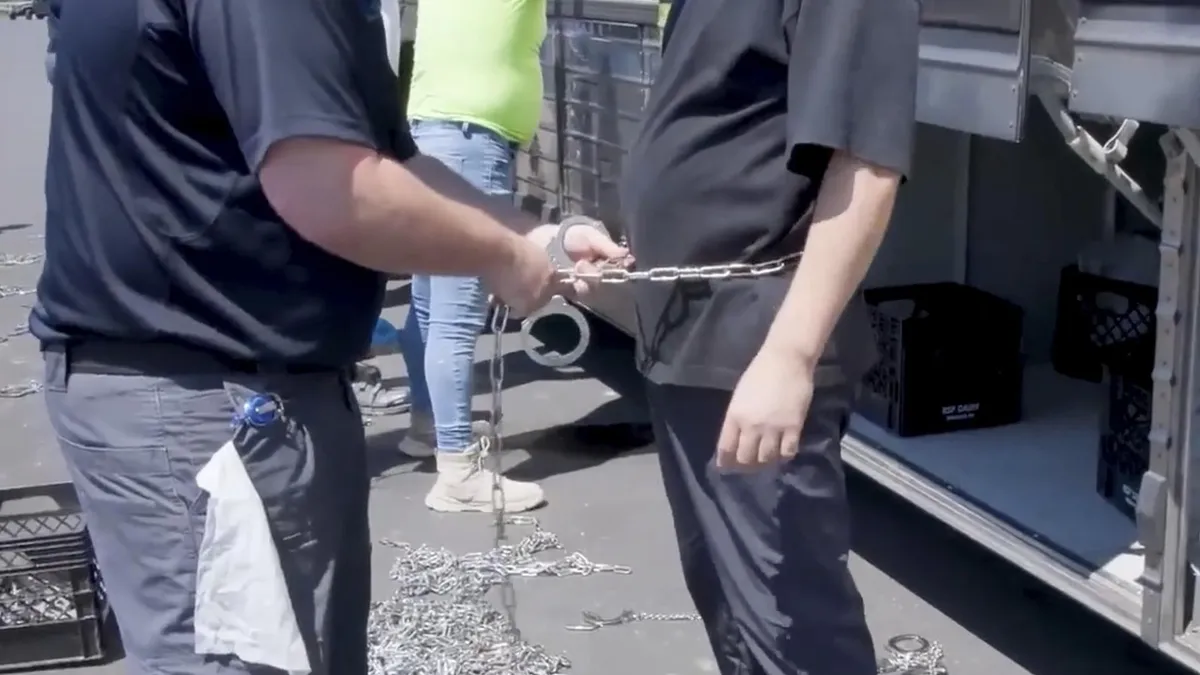
In early September, a significant immigration raid at a Hyundai manufacturing site in southeast Georgia led to the detention of nearly 500 workers. This event has triggered a wave of distress among families in the community, as highlighted by Rosie Harrison, the director of the Grow Initiative, a non-profit organization focused on connecting low-income families—both immigrant and non-immigrant—with essential resources such as food, housing, and education. “We have individuals returning calls every day, but the list doesn’t end,” Harrison stated, emphasizing the unprecedented level of crisis families are currently facing.
The workplace raid, described by U.S. officials as the largest in two decades, resulted in the detention of 475 individuals, the majority of whom were Korean and have since returned to South Korea. However, many non-Korean immigrants caught in the crackdown remain unaccounted for or are in a state of legal limbo, according to lawyers and social workers. As the raid unfolded on the morning of September 4, workers began reaching out to Migrant Equity Southeast, a local nonprofit dedicated to providing immigrants with legal and financial resources. Spokesperson Vanessa Contreras reported that the organization, which employs around 15 staff members, received calls from individuals hailing from Mexico, Guatemala, Colombia, Chile, Ecuador, and Venezuela.
As federal agents conducted the raid, reports emerged of workers having their cellphones confiscated and being lined up for identification. Many sought refuge, hiding in air ducts or remote areas of the expansive manufacturing site, with some reportedly hiding in a nearby sewage pond. Those off-site frantically called the organization, desperate for information regarding their loved ones who had suddenly become unreachable.
Among the detained workers, advocates and lawyers have noted that some individuals possessed legal authorization to work in the United States. Neither the Department of Homeland Security nor Immigration and Customs Enforcement (ICE) provided comments regarding the incidents. Atlanta-based attorney Charles Kuck, who represents both Korean and non-Korean workers, revealed that two of his clients were granted legal status under the Deferred Action for Childhood Arrivals (DACA) program. One client had been released, with Kuck asserting, “he should have never been arrested,” while the other remained in custody due to a recent DUI charge.
One of Kuck's clients was in the process of seeking asylum and had the same documentation and employment as her husband, who was not arrested. Some detainees even possessed valid Georgia driver's licenses, which are not available to individuals residing in the country illegally, according to Rosario Palacios, who is assisting Migrant Equity Southeast. Families reaching out to the organization reported losing access to transportation because their detained loved one was the sole driver in the household. “It’s hard to say how they chose who they were going to release and who they were going to take into custody,” Palacios noted, adding that some arrestees lacked an alien identification number and remain unaccounted for.
The raid is indicative of the extensive crackdown initiated by the Trump administration, despite claims of targeting serious criminals. Kuck pointed out that the redefinition of “criminal” now encompasses anyone who is not a citizen, and even some who are. Families reached out to Harrison's initiative, expressing concern that their detained relatives were the primary earners, leaving them in dire need of basic necessities like baby formula and food.
The financial consequences of the raid at the Hyundai site—part of a construction project for a battery factory operated by HL-GA Battery Co.—were exacerbated by the looming closure of another major employer in the region, International Paper Co., which is set to lay off 800 workers by the end of the month, according to Harrison. While the Grow Initiative does not inquire about immigration status, most families contacting them have asserted that their detained loved ones had legal permission to work in the U.S., resulting in confusion over the circumstances of their arrests. “The worst phone calls are the ones where you have children crying, screaming, ‘Where is my mom?’” Harrison lamented, highlighting the emotional toll this situation has taken on families.